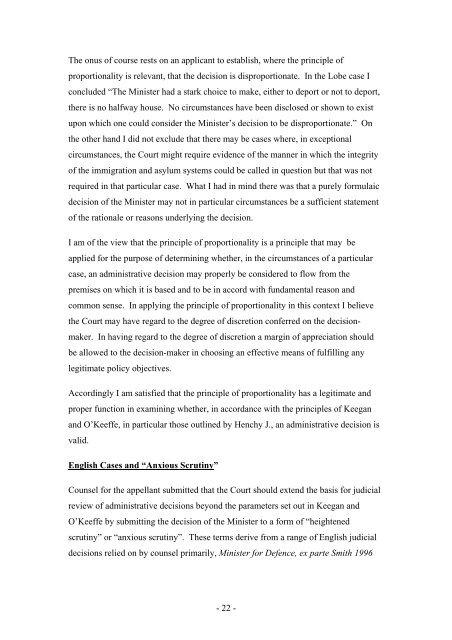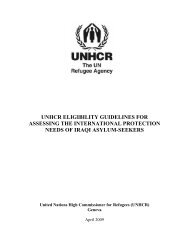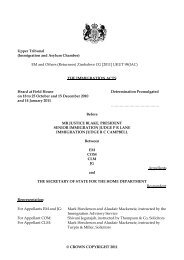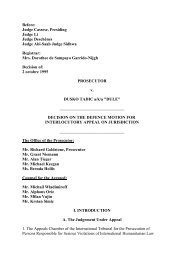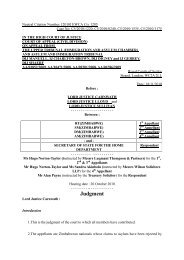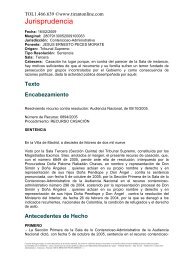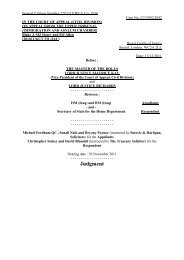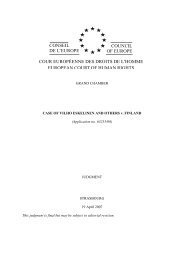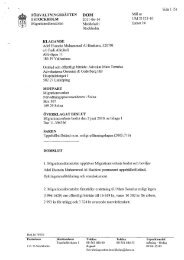Meadows v MJELR IESC 3.pdf - European Database of Asylum Law
Meadows v MJELR IESC 3.pdf - European Database of Asylum Law
Meadows v MJELR IESC 3.pdf - European Database of Asylum Law
You also want an ePaper? Increase the reach of your titles
YUMPU automatically turns print PDFs into web optimized ePapers that Google loves.
The onus <strong>of</strong> course rests on an applicant to establish, where the principle <strong>of</strong>proportionality is relevant, that the decision is disproportionate. In the Lobe case Iconcluded “The Minister had a stark choice to make, either to deport or not to deport,there is no halfway house. No circumstances have been disclosed or shown to existupon which one could consider the Minister’s decision to be disproportionate.” Onthe other hand I did not exclude that there may be cases where, in exceptionalcircumstances, the Court might require evidence <strong>of</strong> the manner in which the integrity<strong>of</strong> the immigration and asylum systems could be called in question but that was notrequired in that particular case. What I had in mind there was that a purely formulaicdecision <strong>of</strong> the Minister may not in particular circumstances be a sufficient statement<strong>of</strong> the rationale or reasons underlying the decision.I am <strong>of</strong> the view that the principle <strong>of</strong> proportionality is a principle that may beapplied for the purpose <strong>of</strong> determining whether, in the circumstances <strong>of</strong> a particularcase, an administrative decision may properly be considered to flow from thepremises on which it is based and to be in accord with fundamental reason andcommon sense. In applying the principle <strong>of</strong> proportionality in this context I believethe Court may have regard to the degree <strong>of</strong> discretion conferred on the decisionmaker.In having regard to the degree <strong>of</strong> discretion a margin <strong>of</strong> appreciation shouldbe allowed to the decision-maker in choosing an effective means <strong>of</strong> fulfilling anylegitimate policy objectives.Accordingly I am satisfied that the principle <strong>of</strong> proportionality has a legitimate andproper function in examining whether, in accordance with the principles <strong>of</strong> Keeganand O’Keeffe, in particular those outlined by Henchy J., an administrative decision isvalid.English Cases and “Anxious Scrutiny”Counsel for the appellant submitted that the Court should extend the basis for judicialreview <strong>of</strong> administrative decisions beyond the parameters set out in Keegan andO’Keeffe by submitting the decision <strong>of</strong> the Minister to a form <strong>of</strong> “heightenedscrutiny” or “anxious scrutiny”. These terms derive from a range <strong>of</strong> English judicialdecisions relied on by counsel primarily, Minister for Defence, ex parte Smith 1996- 22 -


